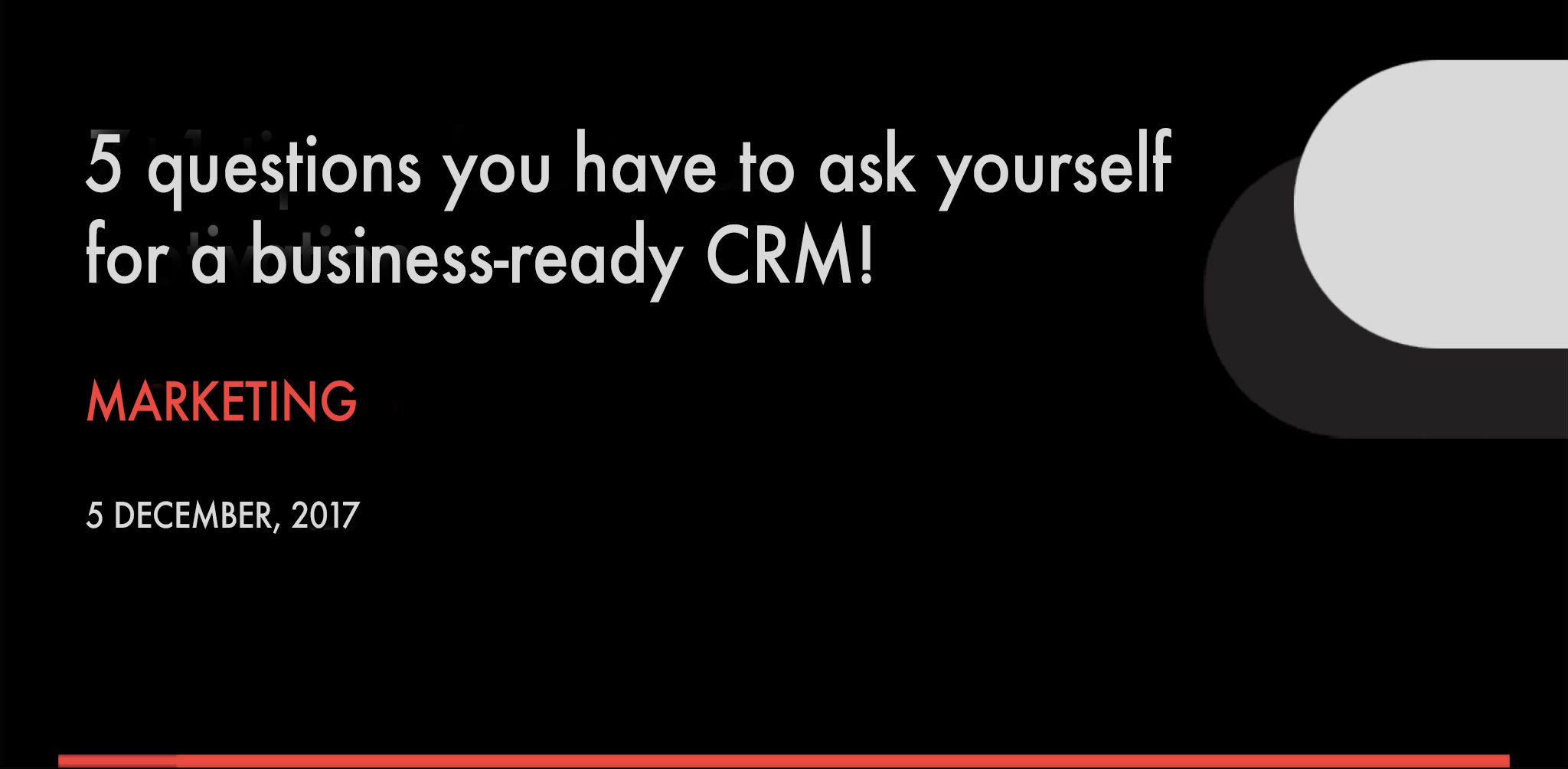5 questions you have to ask yourself for a business-ready CRM!

So, what’s CRM? It’s a Customer Relationship Management (CRM) system that helps manage customer data to support sales, deliver actionable insights, and empower team communication, while cloud-based CRM systems offer complete mobility and access.
You know that already, don’t you?
And what’s the promise it delivers?
Better business.
Right? Well, not really.
Why is that? Because CRM is no less, but certainly no more of a system. And systems are great when you ask them to do things for you, instead of expecting them to think it all by itself.
This is what we call intelligence. Business intelligence. And this is why 39% of CRM projects fail.
Not because the system underperformed, at least not in the majority of cases, but we simply didn’t quite know what to ask of it.
Now check the 5 most critical questions you have to pose to yourself to make your CRM system business ready!
How can CRM help us make better decisions? Creating nice forms that should be filled in with masses of data, are always impressive but don’t necessarily have business decision value; what everyone needs is to design a CRM system that feeds us with the reporting that we are interested to obtain. You will need to make up your mind on the actual reports that will have all the available information to help you make strategic decisions For example, let’s say that you need recurring evaluations on marketing and at the same time to identify the different personas of our salesforce; what you will need, would be a report with the number of leads from marketing activities during a fixed period of X months, and their conversion rate compared with the performance of our salesmen at the same period. Interesting conclusions could be drawn concerning the performance of the marketing department and the sales team which could also help you decide whether you will need to empower marketing or maybe hire a new salesman.
Does it fit well into our processes? Another thing you should make sure to take the right decision is on the right type of CRM system to fit the structure of your sales department while serving at the same time its needs. For example, a retail business needs its salesmen to collect orders while being on the move and at the same time have access to products’ availability and other info through a CRM system. On the other hand, a B2B company, providing services, will need software to monitor and manage its sales cycle (e.g. phone calls, tasks, appointments, quotes) which usually is a very long procedure. This is why you will have to make sure that you have identified our company needs and selected the right system that could actually address them, before starting to design our CRM system.
What is your own business model to decide? Well, there are many templates, pre-set models, and best practices and are surely close to the way you do your business, but you really need to invest some time to make a model that’s ideal for you, rather than copying the business model of other companies, even the ones that are presented as success cases!
Make no mistake here, this is your own CRM system!
Many companies believe that in order to successfully implement a CRM, what they need is simply copy the best practices presented by other companies, especially multinationals, such as Microsoft. But this is not true! Each company needs to develop a tailor-made CRM implementation based on its needs. For example, if a company has a sales team consisting of 4 salesmen, it probably doesn’t need an abundance of forms to fill in with data on customers; a simple form to collect basic data would be more than enough, especially when it is compensated with regular sales meetings so that salespeople could update each other.
What kind of information is really important? Avoid structured data for all kinds of information. It doesn’t always work! Information that could not contribute to making a decision or could not be part of reporting, should probably be taken off your CRM system. Getting all sorts of information is malpractice that has led to the well known GiGo (Garbage In – Garbage Out) effect. There are lots of other tools more suitable where you could share/collect such information, as Yammer or OneNote.
How can we better collaborate? Finally, do not forget that by combining different tools and systems you can increase your team’s productivity and ability to collaborate. As an example, try to combine CRM and OneNote –a program that helps you easily take down unstructured notes and at the same time enables you to share with your colleagues – and watch your teams’ productivity significantly increase.
Well, that’s about it. To wrap it up, CRM is no less, but certainly no more of a system. Make sure to treat it as one and sharpen its edges with well worthy business intelligence, to turn it into the right tool that could carve up your way into business success.